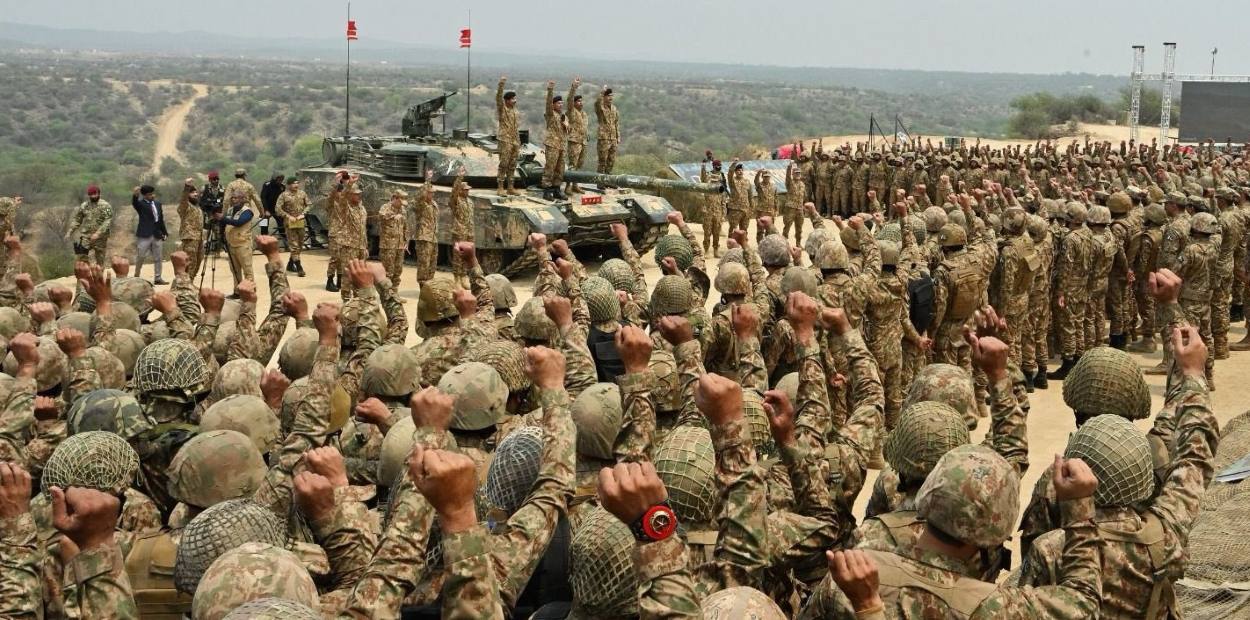The Inter-Services Public Relations (ISPR) detailed a 19-day military conflict with India, spanning April 22 to May 10, 2025, named Marka-e-Haq (Battle of Truth). This conflict culminated in Operation Bunyaan al Marsoos, a decisive counteroffensive against Indian aggression.
Operations launched on May 10, the operation targeted 26 Indian military installations, responding to attacks that killed Pakistani civilians, showcasing Pakistan’s advanced military capabilities and national unity, as per ISPR’s May 12 statement.
Marka-e-Haq and Operation Bunyaan al Marsoos
Marka-e-Haq began after India’s Operation Sindoor on May 6–7, which ISPR claims killed 33 civilians, including women and children, in strikes on six Pakistani localities. Operation Bunyaan al Marsoos, named after a Quranic verse symbolising unity (Surah Al-Saff 61:4), struck airbases like Suratgarh, Adampur, and Pathankot, BrahMos facilities in Beas and Nagrota, and S-400 systems in Adampur and Bhuj, causing significant damage. ISPR reported no civilian targeting, with Pakistani drones over New Delhi and cyber operations disrupting Indian infrastructure.
ISPR highlighted a “textbook demonstration” of tri-services synergy, using Fatah-series missiles, precision munitions, and cyber warfare, with 84 Indian drones downed. The operation, driven by real-time intelligence and network-centric capabilities, avoided civilian casualties, targeting only military and terrorist-linked sites, including intelligence units in Rajauri.
Read: Pakistan Clarifies Ceasefire Origins, Details Operation Bunyaan al Marsoos Success
COAS General Syed Asim Munir, who recited Surah Al-Saff before the operation, visited CMH Rawalpindi on May 12 to honour wounded soldiers and civilians, praising their bravery.
The ISPR credited Pakistan’s success to public support, with youth acting as “cyber and information warriors” and media countering Indian disinformation.
Prime Minister Shehbaz Sharif and political leaders unified behind the armed forces, with Sharif declaring May 10 as Youm-e-Marka-i-Haq to commemorate the operation annually. The military thanked scientists, engineers, and diplomats for their roles, quoting Surah Anfal: “They plan, and Allah plans. And Allah is the best of planners.”
ISPR alleged a spike in Indian-backed terrorism in Khyber Pakhtunkhwa and Balochistan during the conflict, aimed at distracting Pakistan’s eastern operations.
The armed forces carried out simultaneous counter-terrorism operations in the west, demonstrating their resilience. While these claims are supported by the ISPR, they have not been independently verified. This aligns with Pakistan’s narrative that attributes India’s involvement in regional instability.






